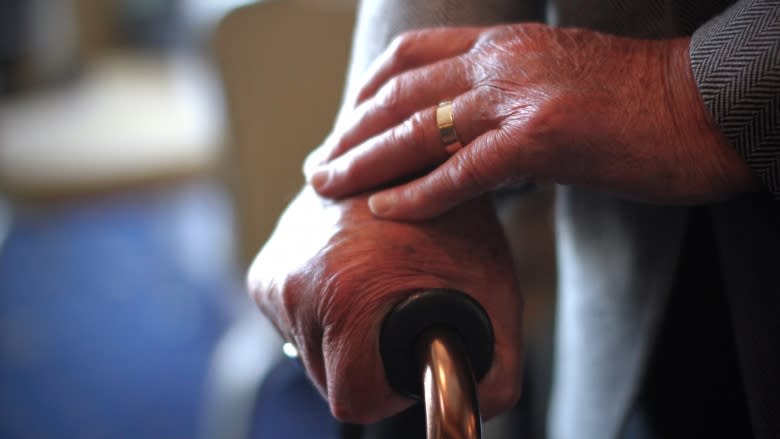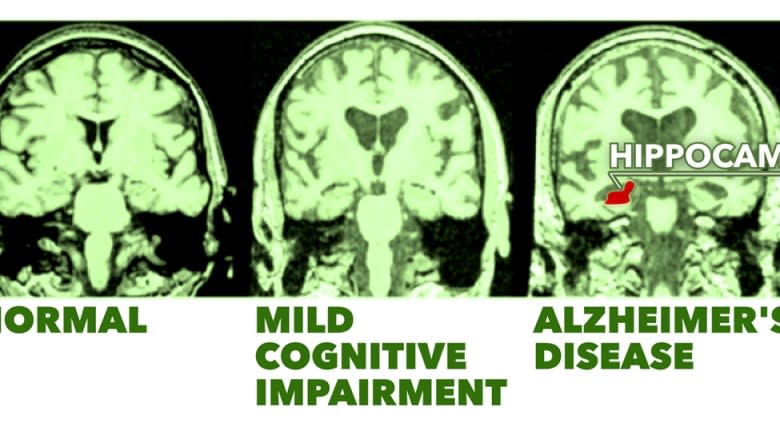Moncton prof's dementia app could ease pressure on medical system
Sarah Pakzad knows of women with dementia who've spent the last two years in hospital beds, waiting for a spot in a care home.
The professor of clinical neuropsychology at University of Moncton said the difficulty of early diagnosis of dementia — and the uncertainty that causes people to be referred incorrectly — is the reason she spent the last seven years working on a project that may be part of the solution.
Pakzad's Neurocognitive Frailty Index, or NFI for short, is an app that draws on a database of at least 25,000 patients over 50 to better predict the risk of dementia, while considering their physical health as well as their ability to multi-task and remember.
How it works
The app asks demographical questions and walks the patient through tests. It considers whether the patient has cardiovascular disease, hypertension or diabetes, because those make a huge difference, Pakzad said.
The doctor administers those tests and enters values into the app and, at the end of the examination, the app will produce a percentage probability of the patient developing dementia.
The NFI is in its last stage of development, where it will be made into a mobile app for medical doctors and nurse practitioners to use in their offices across the province.
"We realize very very late that the people are developing dementia," Pakzad said. "Why? Because first of all there is no early diagnostic of dementia, people are complaining and waiting and waiting and waiting.
"We know that in New Brunswick, the family physicians, they don't have the tools that they need and they don't have time."
That could change as doctors make use of the new app.
"[A doctor] is able to say, 'OK this person is complaining about memory,'" Pakzad said. "And this tool is showing me that he's not really at risk … so I don't need to refer this person to a geriatrician, so there is no need go this person to be on the waiting list for two to three years."
Or it will show that the patient is at a high risk, she said, and the doctor will schedule that person for more frequent checkups or refer them.
"The accuracy of NFI has been tested and tested and tested and the accuracy is more than 90 per cent," she said.
Pakzad hopes to finish up designing the app with the help of the university's engineering department by next year.
She is now looking at the community for volunteers who want a free memory test, because she needs information from healthy individuals as well as from people with diseases that will make dementia onset more likely.
Nalini Sen, director of the research program at the Alzheimer's Society of Canada, said the society has been partnering with Pakzad and 400 other investigators for the past four years as part of the Canadian Consortium on Neurodegeneration in Aging.
When it's dementia, and when it's not
Sen said the consideration of aggravating factors — diabetes, hypertension, heart disease — is integral to being able to predict the risk of dementia more accurately.
"Fifty per cent of dementia cases are linked to stroke and cardiovascular disease," Sen said. "They're very relevant."
While it's important to diagnose dementia earlier, she said, it is also important to rule out other illnesses that masquerade as dementia.
"Depression and thyroid disease and infection can produce similar symptoms to dementia," Sen said. "I think that her effort to really seek earlier diagnosis is exactly what we need. There are great benefits that are associated with doing so."
Pakzad said if a senior is exhibiting memory loss, it may be anxiety or depression, and that's treatable.
Similar app
Sen said there is one similar app out of Europe that's available to the public, but it only takes into account heart disease. She said it's important to avoid self-diagnosis.
"The diagnosis of dementia is a complex process and requires very careful medical evaluation," she said.
"No single test online, or even at the doctor's office can accurately determine whether or not people have dementia, so just for people to keep that in mind."

 Yahoo Finance
Yahoo Finance 

